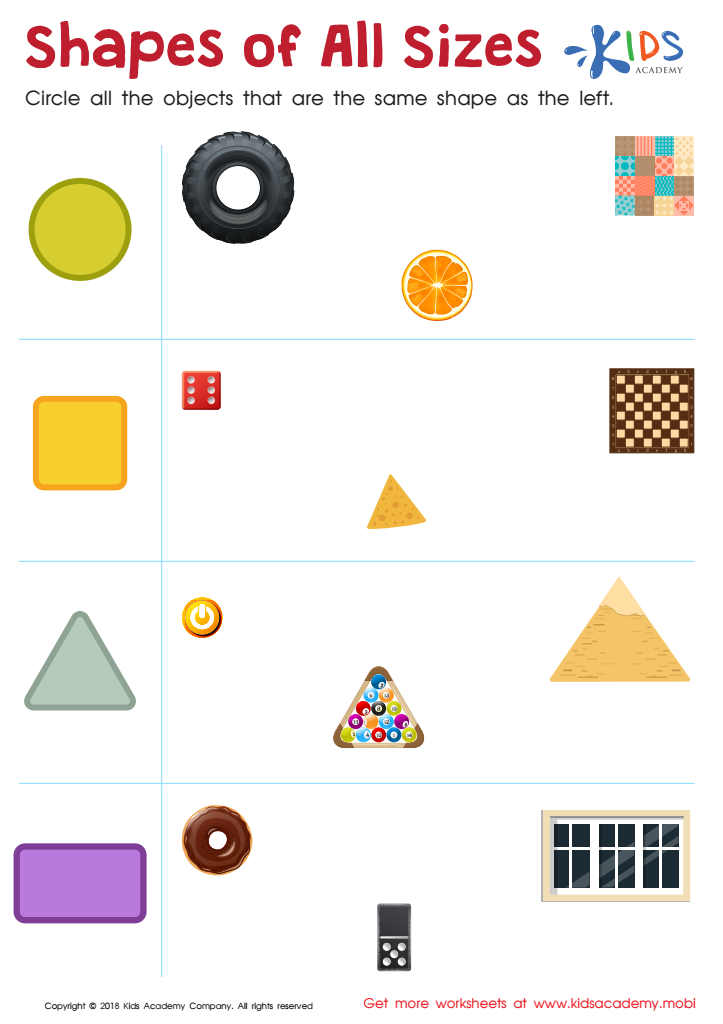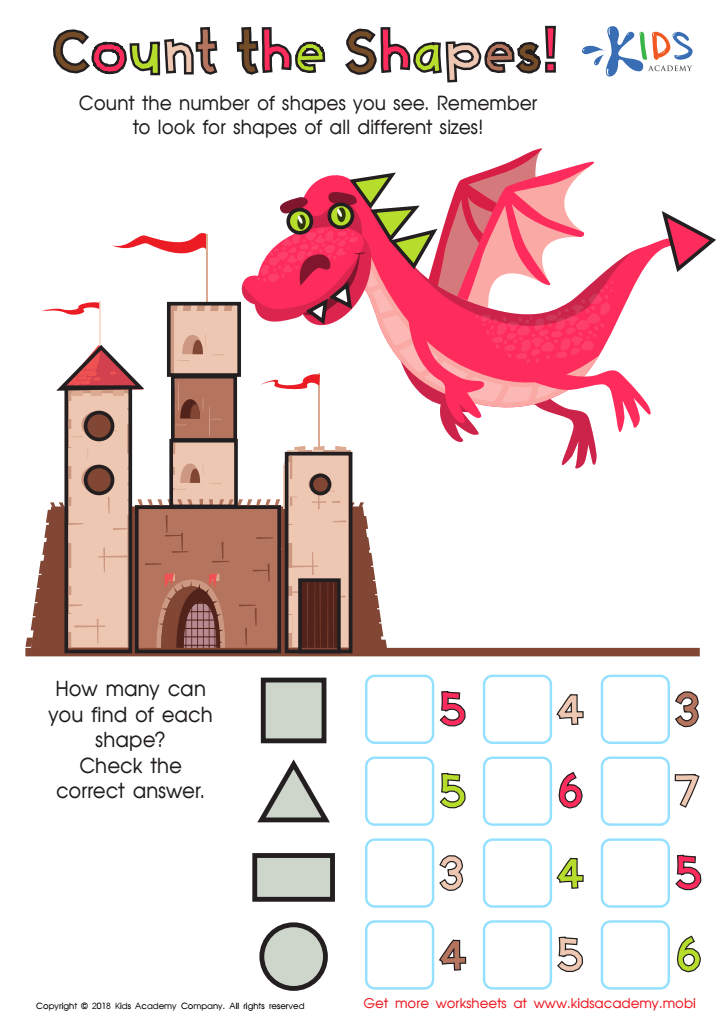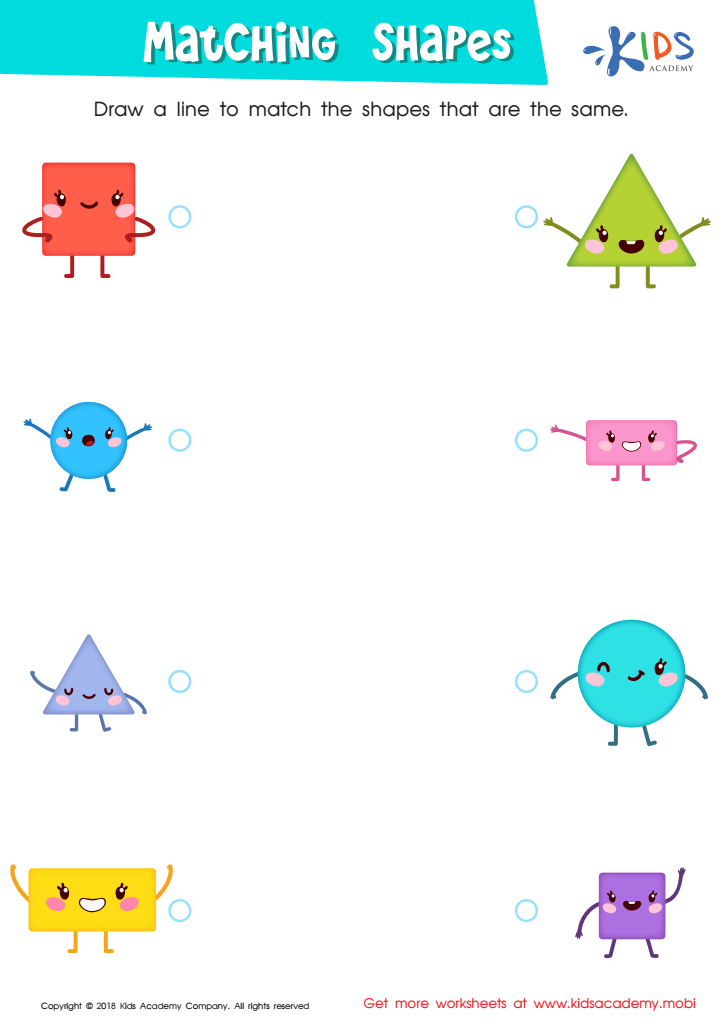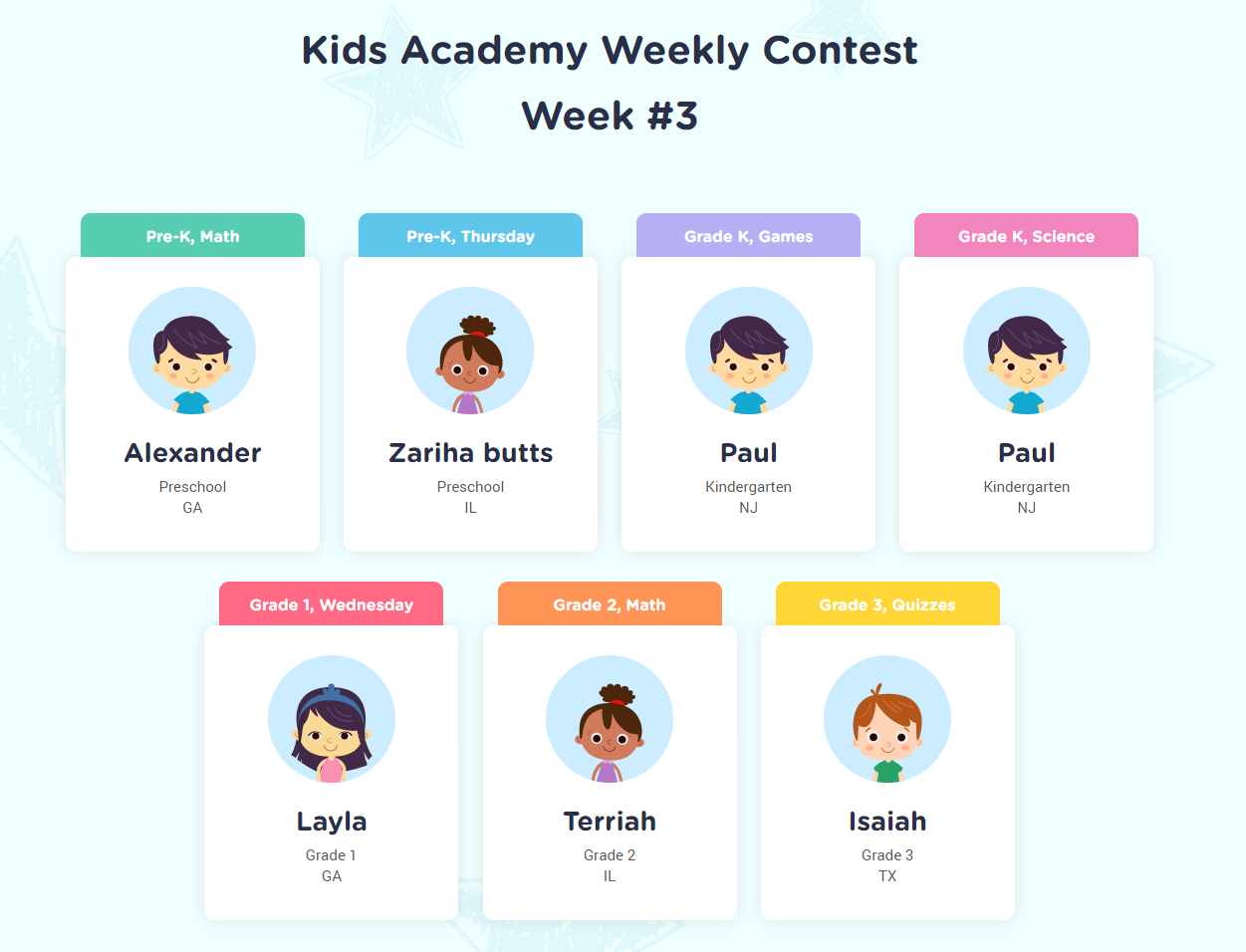K.G.A.2 Geometry worksheets With Answers for Kindergarten
3 filtered results
-
From - To
Welcome to our K.G.A.2 Geometry worksheets designed specifically for kindergarten students! Our carefully crafted worksheets focus on spatial awareness and understanding shapes, core components of the K.G.A.2 standards. With engaging activities, young learners will explore attributes of different shapes like circles, squares, and triangles while enhancing their critical thinking and visual recognition skills. Each worksheet comes with a comprehensive answer key, making it easier for educators and parents to guide students as they learn. Perfect for classroom use or at home, our K.G.A.2 Geometry worksheets are a fun and interactive way for kids to master essential geometry concepts!


Shapes of All Sizes Worksheet


Count the Shapes Worksheet


Matching Shapes Worksheet
The Kindergarten Geometry standard, K.G.A.2, is essential for early learning, as it focuses on understanding shapes and their features. This standard emphasizes the importance of recognizing and naming basic shapes such as squares, circles, and triangles, which forms the foundation for spatial awareness and problem-solving skills.
Parents and teachers should care about K.G.A.2 because shape recognition is crucial to a child's cognitive development. Mastering geometrical concepts helps children make connections in articulate reasoning, which can improve overall academic performance as they progress through the educational system.
Additionally, engaging with geometry supports fine motor skills as children learn to create and identify shapes through hands-on activities like drawing or crafting. Early exposure to geometric concepts fosters creativity and curiosity, encouraging young learners to explore their surroundings and think critically about relationships between objects.
Furthermore, building a strong geometry background in kindergarten can significantly benefit children in later subjects like mathematics and science, leading to better understanding and performance in these critical areas. Ultimately, promoting a robust grasp of geometry cultivates confident, competent learners, ensuring a solid foundation for future educational success. Parents and teachers play a pivotal role in nurturing these essential skills, benefiting children's lifelong learning journey.
 Assign to My Students
Assign to My Students





.jpg)









